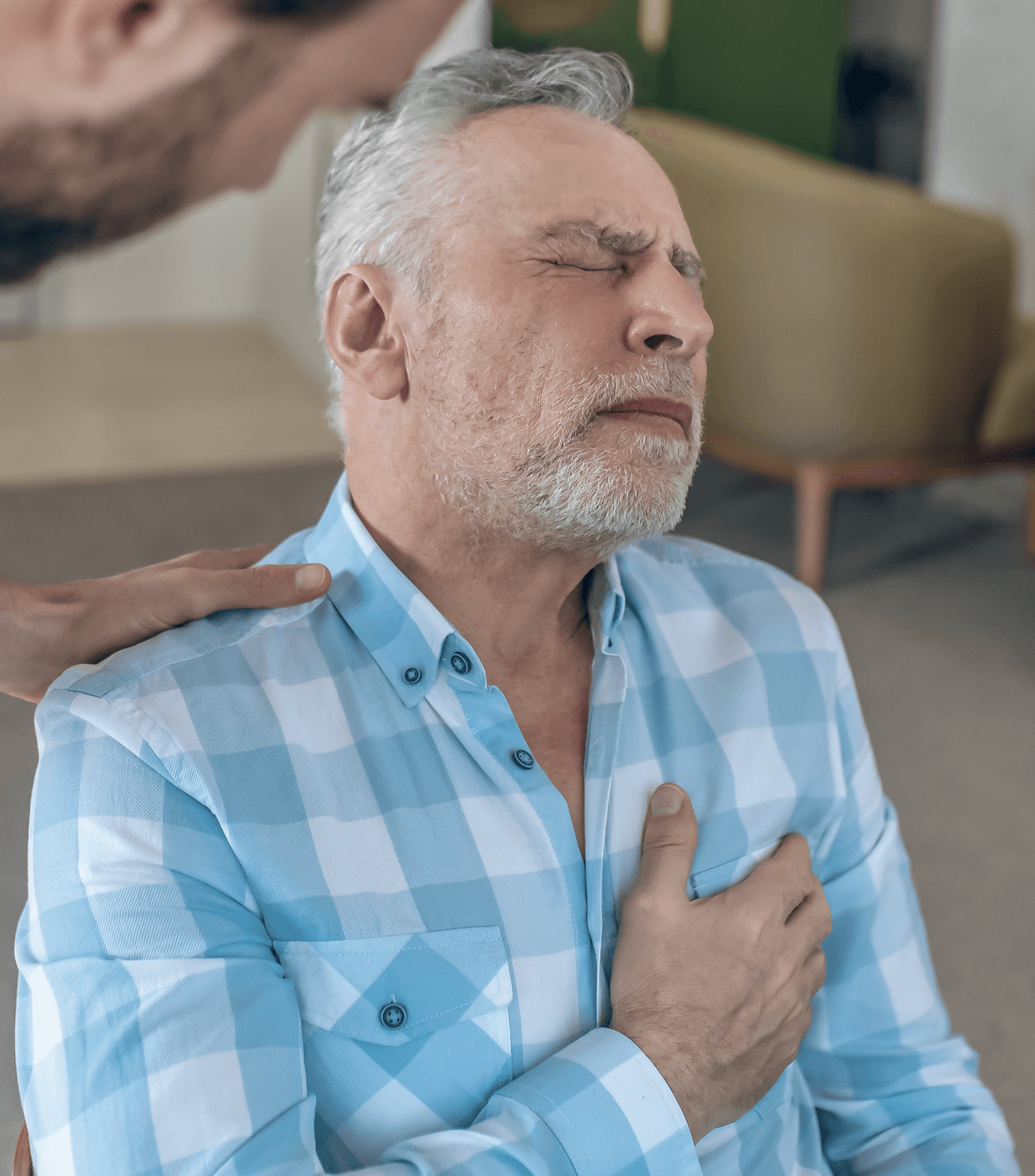
If you see sudden cardiac arrest in the news, chances are it’s a story about a young adult – often a finely-tuned athlete – collapsing suddenly.
It’s tragic and underscores that sudden cardiac arrest can happen to anyone, even people in their physical prime.
These stories are important, of course. However, it’s also important to be aware that sudden cardiac arrest overwhelmingly impacts older adults. Consider this:
- The median age for sudden cardiac arrest victims is between 66 and 68.
- About two thirds of people who experience sudden cardiac arrest are over 60.
- Men experience sudden cardiac death at three times the rate of women.
Increased age is a key risk factor in sudden cardiac arrest because age tends to boost the likelihood that other existing conditions will compromise heart health.
Here’s some steps you can take to boost your sudden cardiac arrest IQ.
Know the facts
Sudden cardiac arrest occurs when the heart suddenly and unexpectedly stops beating due to an electrical irregularity. Blood stops flowing to the brain, organs and the rest of the body. Symptoms include loss of consciousness, lack of a pulse, and cessation of breathing.
Without quick medical attention from bystanders while emergency medical services are en route, the chances of survival are low. Typically, 90% of people who experience out-of-hospital sudden cardiac arrest will die. By performing CPR and using an automated external defibrillator, or AED early on, chances for survival are much greater.
Know your risk factors
Heart problems are the most important risk factors for cardiac arrest. Your risk of cardiac arrest increases with age because aging can cause changes in the heart’s structure and function, further increasing risk. Some risk factors, like inherited cardiomyopathies or arrhythmias, cannot be changed, but you can still take steps to lower your risk.
Other factors that increase risk:
· A previous sudden cardiac arrest or heart attack
· Coronary artery disease
· Family history of sudden cardiac arrest, heart attack, or coronary artery disease
· High blood pressure
· High blood cholesterol
· Obesity
· Diabetes
· Smoking
· An inactive lifestyle
Know how to keep healthy and keep your doctor up to date
Eating healthy, keeping your blood pressure and cholesterol in check, not smoking, and not using tobacco are a few things you can do to reduce your risk of sudden cardiac arrest.
And it’s extremely important to talk with your doctor or healthcare provider about any risk factors you might have. Regular checkups are key. Your care team can help you develop the right care plan – and stick to it.
Know to involve others too
Involve your family and friends. If you’re at increased risk for sudden cardiac arrest, it’s important to let them know how they can help. Consider encouraging them to get CPR and AED trained.
It’s likely they’re concerned too and want to be prepared to help. By taking the time to learn these life-saving skills, they can potentially make a difference in someone's life and feel empowered knowing they are prepared to handle an emergency situation.
A little bit of the right knowledge can go a long way. Knowing is half the battle.
Need more information? Contact Starting Hearts at @info@startinghearts.org.
